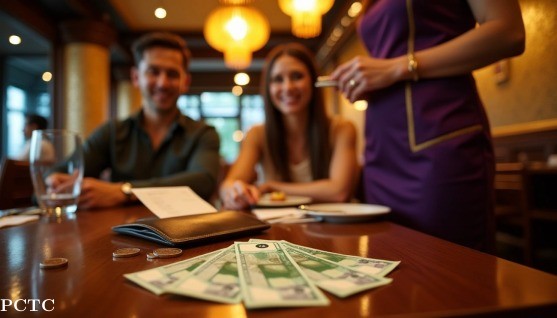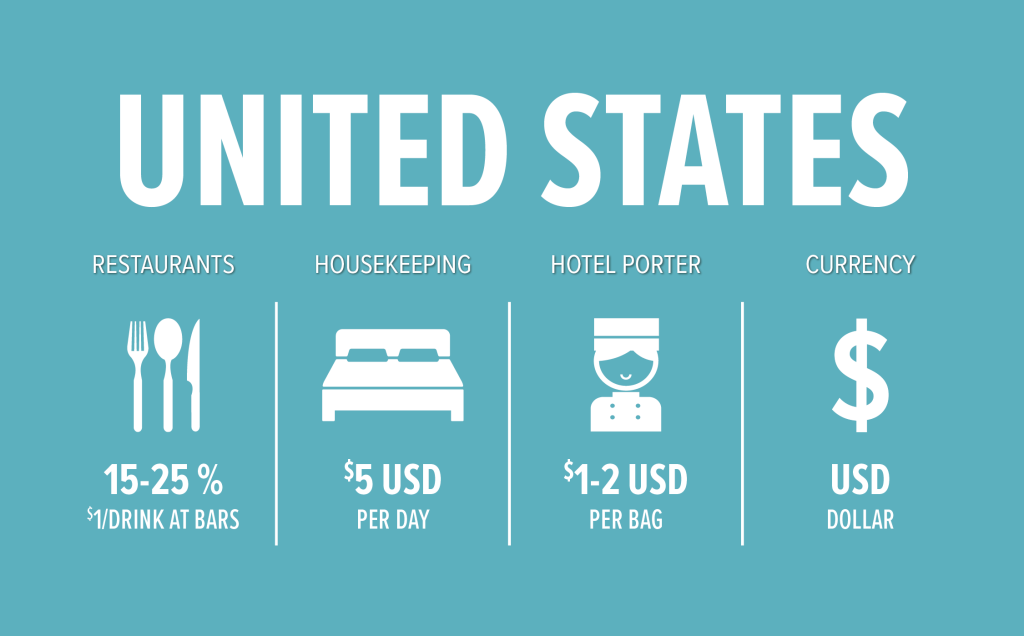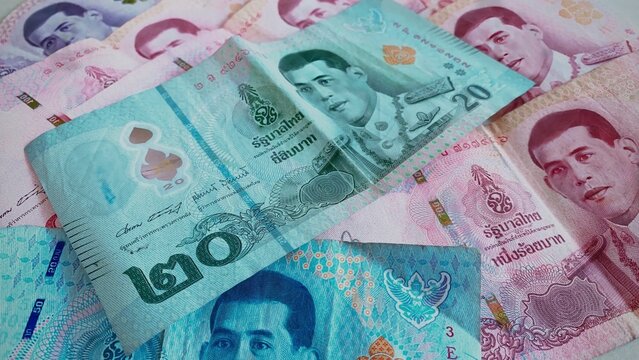
The Real Tipping Culture in Thailand: Essential Advice for Travelers
Tipping etiquette Thailand can be confusing for many travelers. Unlike in Western countries, where tipping 15-20% is standard practice, Thailand doesn't have the same expectations. In fact, most restaurants and cafes already include a service charge on your bill.
Understanding Tipping Culture in Thailand
The concept of gratuities in Thailand differs greatly from what many international visitors are accustomed to. As you navigate this fascinating country, understanding local practices will help you show appreciation appropriately.
Is tipping expected or optional?
Throughout Thailand, tipping remains entirely optional rather than mandatory. Most Thais themselves rarely tip in everyday situations. Nevertheless, local customs vary significantly between tourist areas and more rural regions. In popular destinations like Phuket or Bangkok, the practice has become more common due to Western influence.
Thai culture traditionally values modesty, and expressions of wealth were historically considered inappropriate. Furthermore, hospitality workers often view excellent service as simply part of their duty without expectation of additional compensation. Yet as tourism has grown, attitudes have gradually shifted, especially in establishments catering to international guests.
How service charges affect tipping
One crucial aspect of tipping etiquette Thailand visitors should understand involves service charges. Many restaurants and hotels automatically add a 10% service charge to bills.
This creates a somewhat confusing situation:
- If a service charge appears on your bill, additional tipping becomes truly optional
- The annoying "++" system (sometimes written as "**") means adding both 10% service charge AND 7.7% VAT, totaling 17.7% on your bill
Unfortunately, despite its name, service charges don't always reach staff members. In some establishments, only 60% goes to employees while 40% funds staff benefits and activities. Other venues treat it simply as additional revenue with nothing reaching workers.
Why tipping is still appreciated
Despite being optional, gratuities make a meaningful difference in Thailand. Most service industry workers earn relatively modest wages—sometimes as little as 10,000-15,000 baht monthly (approximately $300-450). Consequently, even small tips represent significant income supplements.
For travellers practising thoughtful Thailand etiquette for tourists, tipping creates goodwill beyond the immediate transaction. Regular patrons who tip appropriately often receive preferential treatment and enhanced service quality on return visits.
The act also embodies the spirit of Thai hospitality—showing mutual respect and gratitude. Beyond financial impact, tips acknowledge someone's hard work and dedication. When given with genuine appreciation rather than obligation, they strengthen positive cultural exchange between visitors and locals.

Tipping Guidelines by Service Type
Knowing exactly how much to leave as a gratuity in different situations helps you navigate tipping etiquette Thailand customs with confidence. Here's a breakdown by service category:
Restaurants and cafes
Always check your bill first—many establishments include a 10% service charge. If no service charge appears, consider leaving 5-10% for good service. At upscale restaurants, 10-15% is appropriate when service charges aren't included. For street food vendors or local eateries, simply rounding up your bill suffices. Remember that tips at restaurants are often pooled; placing money directly in your server's hand ensures they receive it personally.
Hotels and resorts
Hotel staff generally appreciate small tokens of gratitude:
- Bellhops/porters: 20-50 baht per bag
- Housekeeping: 20-50 baht daily, left on your pillow or given directly
- Concierge: 50-100 baht for special arrangements or assistance
These jobs often involve long hours with high standards, so even modest tips make a difference.
Taxis and ride-hailing services
For metered taxis, rounding up the fare works well for short trips. On longer journeys, 10% is customary, especially if the driver helped with luggage. Notably, pre-negotiated rides with tuk-tuks or motorbike taxis typically don't require additional tips as they often include a "tourist premium".
Tour guides and excursions
Tour guides frequently earn around 15,000 baht monthly, making tips significant to their income. For private guides providing exceptional service all day, 300-500 baht is appropriate. Group tour participants typically offer 100 baht per person. Drivers deserve recognition too—100-300 baht for full-day service.
Spas and massage parlors
Massage therapists often receive minimal base pay plus a percentage of the service cost. At traditional massage shops, 50-100 baht tips are standard and appreciated. For high-end spas, 10-15% is customary unless a service charge appears on your bill. Specifically, hand your tip directly to the therapist to ensure they receive it.

How Much to Tip in Common Situations
Knowing specific amounts to tip removes guesswork from your Thailand travel experience. Let's break down exactly what constitutes appropriate gratuities in various scenarios.
Suggested tip amounts in Thai baht
For travellers wanting concrete figures,
Here are typical tip amounts across common services:
- Restaurants: 10-15% at upscale establishments; for casual dining, simply rounding up or leaving 20-50 baht works perfectly
- Hotel Staff: 20-50 baht per bag for porters; 20-50 baht daily for housekeeping[181]; 50-100 baht for concierge assistance[162]
- Transportation: For taxis, round up to nearest 10 baht for short trips; 10-20% for longer journeys
- Massage/Spa: 50-100 baht for traditional massage[181]; 10-15% at luxury spas[162]
- Tour Guides: 100-300 baht per person for groups [162]; 300-500 baht for private guides
When to round up vs. give a percentage
The decision between rounding up or calculating a percentage typically depends on the establishment type and bill amount. Firstly, at street food stalls or local eateries (meals under 100 baht), simply round up to the nearest 10 baht. Meanwhile, at mid-range restaurants without service charges, 10% is appropriate.
For transportation, rounding works best for short taxi rides—for example, turning 91 baht into 100 baht. Conversely, percentage-based tips (10-15%) make more sense for upscale dining, spa treatments, and lengthy private tours.
Tipping for exceptional service
Recognising truly outstanding service calls for additional generosity. At restaurants, increasing your tip to 15% shows appreciation for exceptional attention. For tour guides who go above and beyond, consider 500 baht or more, particularly for private tours.
Massage therapists who provide extraordinary relief deserve 100-200 baht tips. Moreover, for hotel staff who fulfil special requests or provide personalised attention throughout your stay, an extra 100 baht demonstrates sincere gratitude.
Essentially, use your judgement—if someone makes your experience memorably positive, an additional 5-10% or 50-100 baht acknowledges their effort.

Thailand etiquette for tourists: what not to do
Avoid these common missteps:
- Don't over-tip—it can appear patronizing and set unrealistic expectations
- Never leave coins as tips—they're considered less thoughtful
- Avoid leaving money without indication it's a tip—staff might think you forgot it
- Don't tip monks—donations should go to temple donation boxes instead
Conclusion
Understanding Thailand's tipping culture ultimately comes down to thoughtfulness rather than strict rules. Throughout this guide, we've explored how gratuities remain optional yet deeply appreciated across the country, especially considering the modest wages many service workers earn.
Checking your bill for existing service charges stands as perhaps the most important habit to develop. Additionally, carrying small Thai baht denominations ensures you're always prepared to show appreciation appropriately.
